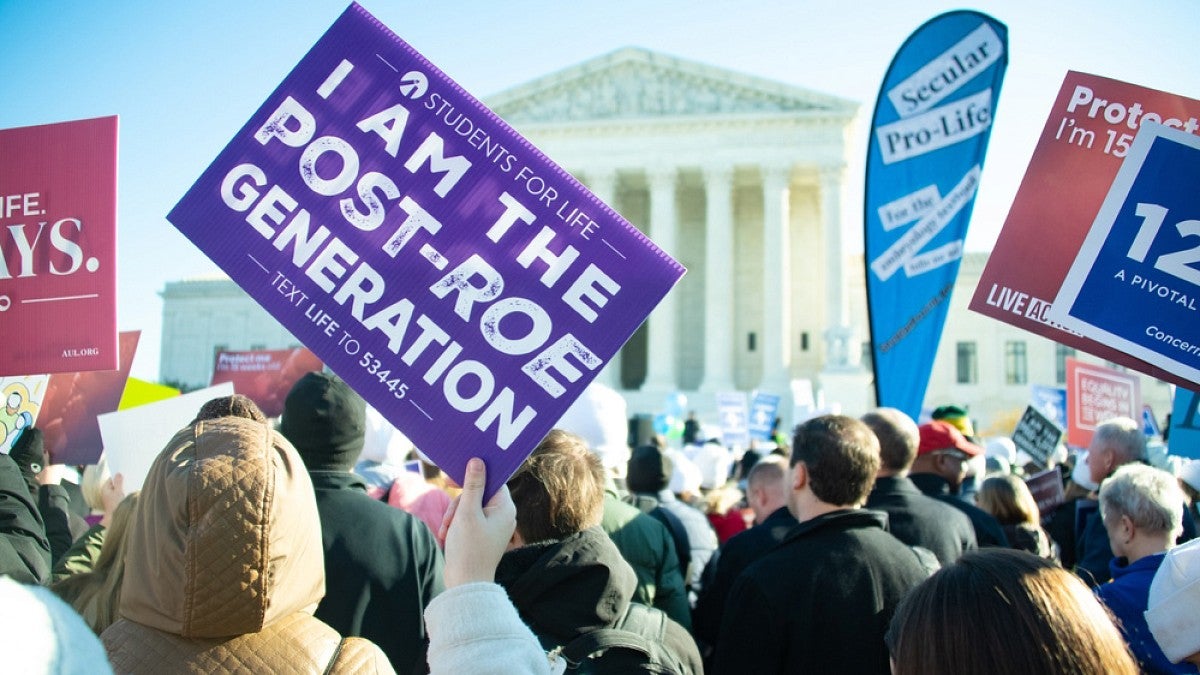The U.S. Supreme Court’s decision Friday striking down the landmark 1973 Roe v. Wade and 1992 Planned Parenthood v. Casey rulings, foreshadowed in a rare leak last month, is likely to have wide, but varying, effects nationally, several UO experts said.
One thing that seems clear is that the legality of abortion now reverts back to the laws in each state. In Oregon, reproductive rights are codified in state statutes. That means access to abortion and related rights are unlikely to change because of the court’s ruling.
“I suspect that the Oregon Supreme Court would argue that their understanding of the state constitutional mandate is that it would protect a person’s right to choose to have an abortion,” said Alison Gash, an associate professor of political science who studies law and social policy, in an interview with Oregon Public Broadcasting after the ruling was announced. “But that becomes largely unnecessary if the state legislative commitments remain on the books.”
The news of the ruling is less of a shock after news of the court’s draft decision was leaked to Politico last month.
“It's not a shock that the majority voted to end Roe. I expected that,” said Garrett Epps, a law professor who wrote an op-ed in the Washington Monthly in May. “It is shocking that Alito's tone is so arrogant and dismissive. Alito seems to be announcing that there's a new sheriff in town and that precedent is no longer a thing.
“For that reason, his breezy assurance that this opinion has no relevance to other unenumerated rights cases (e.g., same-sex marriage, contraception, inter-racial marriage, etc.) rings to me as hollow as the ‘piece of paper’ Neville Chamberlain waved to show that Germany would never go further than the Sudetenland. It's a very badly done opinion and the misogyny is patent throughout.”
The court’s decision is already igniting debate not only about abortion but also reproductive rights that affect most Americans in one way or another. Those include triggering existing abortion bans in almost half of the states; possible implications for other reproductive health care issues, including transgender health care and in vitro fertilization; and broad-ranging laws already on the books in states that criminalize things like traveling for abortions, researching how to get abortions, helping a person get an abortion, and even whether a doctor can say the word “abortion” in a patient consultation.
This decision also carries the possibility of overturning legal precedents in other areas, including same-sex marriage.
“The substance of this decision will be pretty dramatic and raises a lot of questions,” Gash said in May when discussing the draft decision. “There’s talk of some 23 states with pre-Roe bans. There’s the question of if those laws are still any good. Can they stand up to legal scrutiny? Then there’s the question of how many more states will pile on. There’s also the question of Congress. Will they enact a federal ban? How does that effect the 16 or so states with protective laws? Then there’s how this will affect other cases, like same-sex marriage. This could set a precedent that impacts other issues that were considered settled law.”
Krystale E. Littlejohn, an assistant professor of sociology, wrote in the Washington Post about the effect an overturned Roe will have on other reproductive rights, including birth control.
“While there is no doubt that contraceptive access has improved (since 1973), which is good for reproductive autonomy, contraception is not a viable alternative to abortion,” she said. “Put simply, people who have abortions use contraception and people who use contraception have abortions.”
—By Emmily Bristol, University Communications


